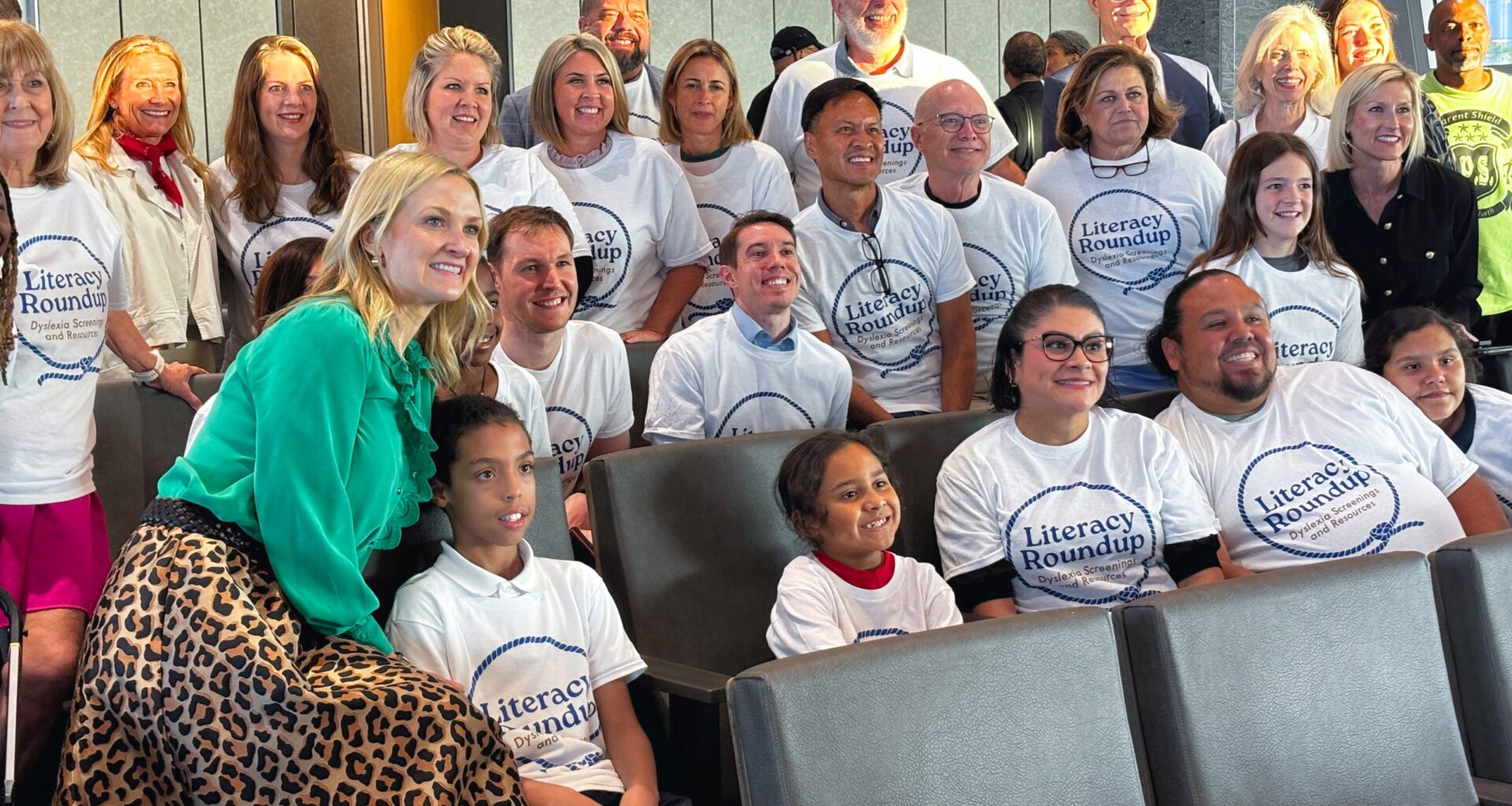Fort Worth mother Kim Medford always asks her kids for their birthday wishes. Her youngest, Noah, was no exception earlier this year.
After blowing out his candles, Noah answered his mom’s annual question: “I just wish I could read. I just wish I could read.”
Medford recounted her son’s difficulties during a Fort Worth City Council meeting Tuesday. She was joined by several other parents and advocates who praised a summer dyslexia screening program called Literacy Roundup.
About half of students living in Fort Worth cannot read proficiently, according to a Fort Worth Education Partnership analysis.
The program, a partnership between the city and the Sid W. Richardson Foundation, determined Noah was dyslexic and empowered Medford to ask the right questions at his school so he can receive the help he deserves, his mother said.
Noah was one of about 400 children who the Literacy Roundup helped, said Caroline James, who led the effort. Besides screenings, the program connected families with volunteers to guide them to receive services from their schools.
Literacy Roundup was set up at six community centers and libraries during the summer. If the program returns in 2026, Parent Shield executive director Trenace Dorsey-Hollins told the City Council to expand it across all of Fort Worth.
“Don’t forget to serve the families on the east side,” she said. “Don’t forget about those kids who are most vulnerable.”
Medford long suspected Noah, a sixth grader at William Monnig Middle School, was dyslexic. Two of Noah’s brothers were previously diagnosed with the learning disorder.
Noah started school in the middle of the COVID-19 pandemic. At home, the problems were apparent to his mom. She asked the teachers at his private school what was happening and they pinned it on the pandemic, the fact he was just slow, that he’s a boy and asserted he’d pick up soon, she said.
But he didn’t. Noah had to repeat the second grade, Medford said. At the end, the private school told her it did not have the resources to properly support Noah.
During Noah’s first week of third grade at Como Elementary, Medford met with his teachers and went over her concerns. He can’t sound out words. He’s twisting letters. His brothers are dyslexic.
Medford ran into similar excuses, she said. He was moved along in third, fourth and fifth grades.
James, the Literacy Roundup leader, screened Noah at Como Community Center. She estimated he was reading on a second-grade level.
“The problem is he knows it,” James said.
His mom sees the impact every day.
“Noah’s very prideful,” Medford said. “He understands that he’s behind all of his classmates.”
Medford was grateful that Literacy Roundup gave her family a tangible action plan to help Noah. Thousands of students have yet to receive similar help, advocates said.
Medford still faces the same barriers and comments she’s encountered every year, she said.
She’s hopeful Noah’s wish will come true soon.
Disclosure: The Sid W. Richardson Foundation has been a financial supporter of the Fort Worth Report.
Jacob Sanchez is education editor for the Fort Worth Report. Contact him at jacob.sanchez@fortworthreport.org or @_jacob_sanchez.
News decisions are made independently of our board members and financial supporters. Read more about our editorial independence policy here.
Related
Fort Worth Report is certified by the Journalism Trust Initiative for adhering to standards for ethical journalism.
Republish This Story
Republishing is free for noncommercial entities. Commercial entities are prohibited without a licensing agreement. Contact us for details.
